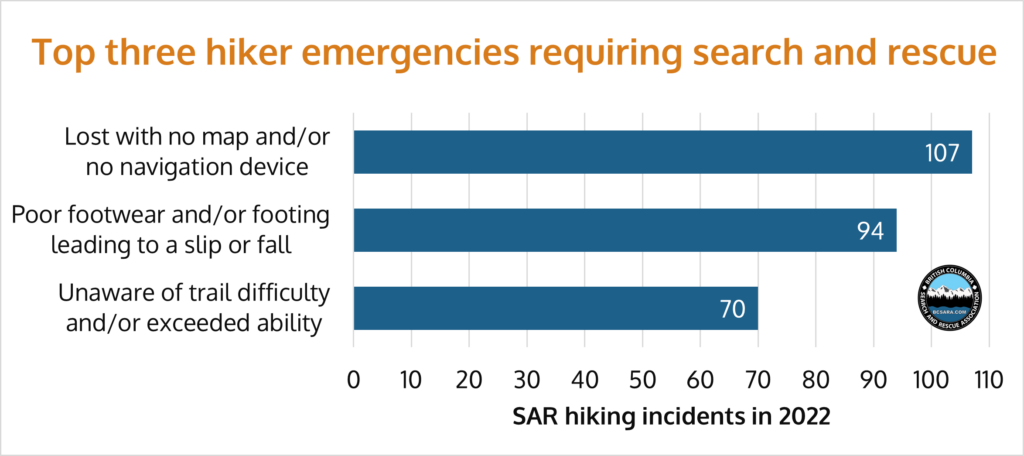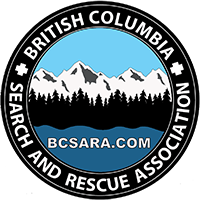Each year, the BC Search and Rescue Association (BCSARA) intends on sharing the top 10 hiking trails with the most search and rescue (SAR) calls, in the hopes of helping recreationalists make better decisions before heading outdoors.
After reviewing the data from 2022, the following top ten trails are the focus of more hiking-related search and rescue calls than any other in the province. In descending order of highest call volume, the trails to be aware of are:
- Rubble Creek trail (heading to Black Tusk trail)
- Howe Sound Crest trail
- Juan de Fuca marine trail
- Stawamus Chief trail
- Sea to Summit trail
- Grouse Grind trail
- Wedgemount Lake trail
- Mount Seymour trail
- Rainbow Mountain trail
- Cape Scott trail
For six of these trails, BCSARA has already prepared safety-specific trail videos to help users be better prepared for the conditions they may encounter. Our colleagues at BC AdventureSmart encourage everyone to view these videos to help reduce SAR callouts on these trails as we head into another May long weekend.
We appreciate and would like to thank again the project partners that supported the creation of these videos; Emergency Management and Climate Readiness, Metro Vancouver, Royal Canadian Mounted Police (RCMP), Avalanche Canada, BC Parks and regional SAR groups.
Top Three Reasons for Hiking Emergencies
This year, we are also pleased to share the top three reasons why hikers, across the province, find themselves in a situation where search and rescue services are required.
As the chart below shows, wearing appropriate footwear, learning how to read a map and being mindful of the level of trail difficulty could have prevented 271 search and rescue missions in 2022.

How Can Hikers Prevent SAR Incidents?
The top causes for hiking emergencies on these trails are, for the most part, preventable. Here’s what hikers can do to prevent SAR callouts:
- Wear appropriate footwear to prevent slips and falls.
- Bring and know how to use a navigation tool like a mapping app (not Google maps) or paper map to prevent getting lost or to find your way back to the trail if you do get lost.
- Research the level of difficulty and conditions of the trail before you leave the house so you know what you’re getting into.
- Use sound judgement and turn around if you’re getting tired or in over your head, so that you’re able to make it home.
Hiking season is here again and we ask enthusiasts to ‘HikeSmart’ and be ‘Rescue Ready’!
We also invite everyone to join BC AdventureSmart for their summer safety webinar series, starting on May 18 and running until August 3 2023, to learn more about personal preparedness and wise outdoor practices from special guests and industry experts. Please also visit https://bcsara.com/outdoor-education/ for more information.
*****
Media Only Contact Information
BC Search and Rescue Association
Nancy Argyle, Manager of Public Relations and Communications
250-204-0163 / media@bcsara.com
